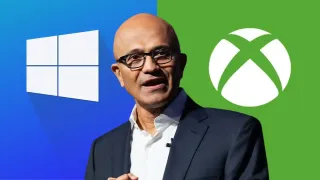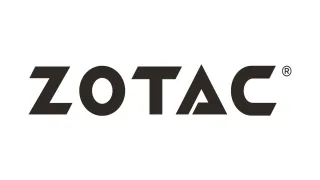India’s introduction of next-generation e-passports marks a transformative leap in the country’s travel and identity infrastructure. These upgraded passports are designed to strengthen national security while offering citizens a smoother, more secure global travel experience. The move comes as part of a larger overhaul under the Passport Seva Programme 2.0, ensuring a smarter, faster, and more future-ready system.
With the shift to e-passports, India is aligning with global standards that prioritise digital authentication, encrypted data protection, and faster immigration processing. The government aims to make every new passport an e-passport, gradually phasing out traditional ones as they reach their expiry. This shift represents not just a technological upgrade, but a reimagining of how identity verification will evolve over the next decade.
As millions of Indians prepare to adopt the new e-passports, the system’s advanced features—from RFID chips to ICAO-compliant digital signatures—promise to significantly reduce fraud and misuse. Combined with AI-powered services and a fully integrated digital verification ecosystem, the nation’s passport infrastructure is entering an era of unprecedented efficiency and security.
India Introduces Next-Generation E-Passports
The rollout of next-gen e-passports brings embedded RFID chips, interlocking microletters, relief tints, and enhanced digital layers to strengthen document security. These passports are built to withstand tampering attempts, physical wear, and sophisticated counterfeiting techniques. According to design specifications, the new system ensures that all personal and biometric data stored in the passport remain fully protected through encrypted digital signatures and globally recognised standards.
Under the new policy, every newly issued passport will now be an e-passport. Existing physical passports will continue to remain valid until they expire, ensuring a smooth and uninterrupted transition for citizens. The government has set an ambitious goal to achieve a complete nationwide shift to e-passports by June 2035, making India one of the most advanced passport-issuing countries in terms of security infrastructure.
Advanced Security and Faster Verification
Each e-passport comes with a sophisticated Radio Frequency Identification (RFID) chip and an internal antenna capable of storing encrypted biometric data. This includes the holder’s photograph, fingerprints, and personal information, all in a tamper-proof format. These chips comply with International Civil Aviation Organisation (ICAO) standards, ensuring international compatibility and secure recognition across global airports.
The contactless data-reading capabilities allow immigration officers to scan and verify a passport within seconds. This significantly reduces queues, minimises manual handling, and boosts overall security by eliminating risks associated with forged or cloned documents. As of now, over 80 lakh e-passports have already been issued within India, with an additional 60,000 provided by Indian missions abroad.
Enhanced Fraud Prevention Measures
With the adoption of e-passports, the Ministry of External Affairs (MEA) aims to curb cases of multiple passport ownership, forged identities, and unauthorised travel. The upgraded system automatically cross-checks an applicant’s biometric and identity details against national databases. If a duplicate entry or an existing passport is detected, it is immediately flagged for verification.
This multi-layered verification process utilises both digital and biometric factors to authenticate applicants, preventing misuse at the earliest stage. Officials have emphasised that the new system will help eliminate loopholes that previously allowed individuals to secure multiple passports using forged documents or alternate identities.
Passport Seva Programme 2.0: A Digital Overhaul
Launched in May 2025, the Passport Seva Programme Version 2.0 (PSP V2.0) has expanded across 37 Regional Passport Offices, 93 Passport Seva Kendras, and 451 Post Office Passport Seva Kendras. A global version of this system, GPSP V2.0, began operating in October 2025 to support Indian citizens abroad. These upgrades have significantly reduced procedural delays and improved transparency.
The system now integrates AI-driven chatbots and voice-based assistance for applicants, offering guidance for document uploads, form submissions, and payment methods. UPI and QR-based transactions simplify fee payments, while the incorporation of DigiLocker, Aadhaar, and PAN ensures seamless and error-free identity validation.
AI and Automation Lead the Transformation
AI-based facial recognition, behavioural analytics, and real-time alert systems add new layers of digital security. These technologies help detect anomalies, reduce impersonation risks, and accelerate document approval. Robotic Process Automation (RPA) is deployed to validate documents, minimising manual errors and expediting workflow across the entire passport issuance chain.
The strengthened digital backbone is supported by three modern data centres located in Noida, Chennai, and Bengaluru. These facilities handle nationwide passport data, threat management, and sensitive information storage. Enhanced cybersecurity measures ensure that personal data remains safeguarded against breaches and unauthorised access.
Improved Accessibility for Citizens Across India
With over 15 million passports issued every year, accessibility remains a priority. The MEA has introduced Mobile Passport Seva Vans across all 37 RPOs, ensuring timely services for citizens in remote or underserved locations. These mobile units help reduce travel expenses for applicants and bring essential services closer to their homes.
Currently, only 32 of India’s 543 Lok Sabha constituencies lack a PSK or POPSK. The government aims to expand its reach to the remaining constituencies within the next six months, ensuring universal access to passport services. This expansion reflects the ministry’s broader goal to create an inclusive, efficient, and technology-driven service ecosystem.
The Road Ahead: India’s Vision for 2035
India’s transition to next-generation e-passports represents a bold step toward establishing a secure, centralised, and future-ready identification system. As the programme expands, it is expected to eliminate major vulnerabilities related to document fraud, identity theft, and cross-border crime. The advanced security layers and digital verification methods aim to position India as a global leader in trusted travel documentation.
By 2035, the envisioned passport infrastructure will fully integrate AI, biometric authentication, and encrypted digital systems. This comprehensive upgrade promises faster processing, enhanced global mobility for Indian travellers, and stronger national security. With these transformative initiatives already underway, India is setting a new benchmark for secure and efficient citizen services in the digital age.
Also Read: Gangster Anmol Bishnoi Arrested by NIA After Return to India























